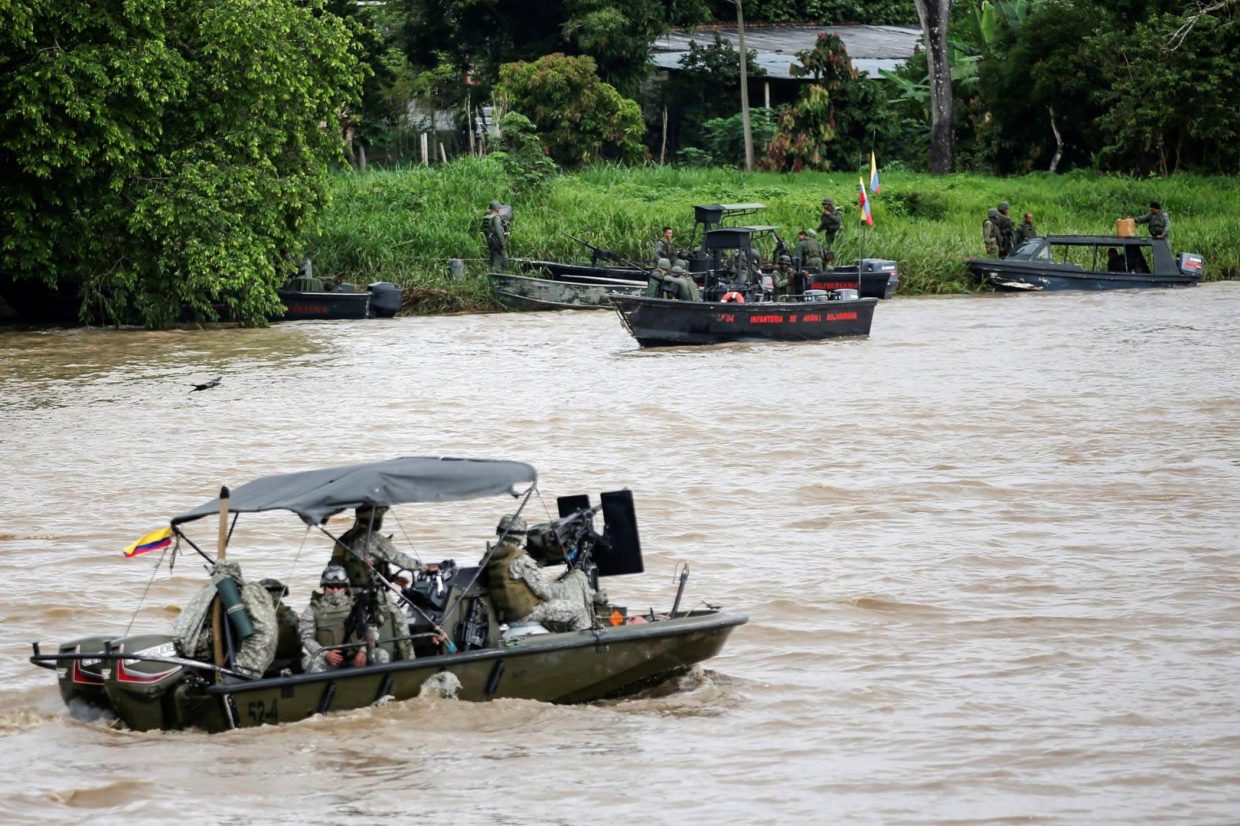Escalating rebel activity along Venezuela’s border regions has intensified existing tensions, raising concerns over regional security and stability. Recent reports indicate a surge in armed clashes and insurgent movements, complicating efforts by Venezuelan authorities to maintain control and prompting heightened alertness among neighboring countries. This article examines the latest developments in rebel operations, their impact on border communities, and the broader geopolitical implications for the region.
Table of Contents
- Rising Rebel Activity and Its Impact on Cross-Border Security Dynamics
- Humanitarian Consequences of Escalating Violence in Venezuela’s Frontier Regions
- Strategic Responses by Regional Governments to Contain the Rebel Threat
- Recommendations for International Collaboration to Restore Stability and Support Affected Communities
- In Retrospect
Rising Rebel Activity and Its Impact on Cross-Border Security Dynamics
The surge in rebel group operations along Venezuela’s border regions has significantly disrupted the existing security equilibrium. These groups exploit the porous nature of the frontier, conducting incursions that not only challenge Venezuelan forces but also provoke heightened vigilance among neighboring countries. Increased armed confrontations, illicit trafficking routes, and strategic guerilla maneuvers have compounded the volatility, forcing border authorities to reassess and intensify their surveillance and defense mechanisms. This escalation has also strained diplomatic ties, as affected nations demand coordinated bilateral and multilateral responses to mitigate cross-border threats.
The implications extend beyond immediate military concerns, impacting local communities and economic stability. Civilians frequently find themselves caught in the crossfire or displaced by the intensifying rebel movements, which in turn catalyzes humanitarian crises. Regional stakeholders are particularly alarmed by:
- Growth in smuggling and trafficking networks facilitating arms and narcotics flow.
- Compromised border infrastructure and checkpoints undermining law enforcement efforts.
- Escalating tensions among border nations leading to an uptick in military deployments.
As rebel activity persists, a comprehensive, collaborative approach remains critical to restoring stability and securing the vulnerable border zones.
Humanitarian Consequences of Escalating Violence in Venezuela’s Frontier Regions
The surge in militant confrontations along Venezuela’s borderlands has precipitated a dire humanitarian crisis, with local communities bearing the brunt of the violence. Displacement numbers have sharply increased as families flee active conflict zones, seeking refuge in overcrowded shelters with limited access to basic necessities. Healthcare facilities, ill-equipped for sudden patient influxes, struggle to provide adequate care amidst shortages of medicine and medical personnel. The interruption of essential services such as clean water supply and electricity has further exacerbated living conditions, disproportionately impacting vulnerable groups including children, elderly, and pregnant women.
Critical challenges currently faced in these affected regions include:
- Widespread food insecurity due to disrupted supply chains and market closures.
- Increased risks of disease outbreaks in overcrowded and unsanitary environments.
- Limited humanitarian access as insecurity hampers aid delivery efforts.
- Heightened psychological trauma among displaced populations from ongoing violence.
International relief agencies have urged for immediate de-escalation and safe corridors to facilitate the delivery of aid. Without prompt intervention, the humanitarian fallout threatens to spiral, compounding the vulnerabilities of border communities already struggling with years of socio-political instability.
Strategic Responses by Regional Governments to Contain the Rebel Threat
In an effort to curb the surge in rebel activities along the Venezuelan border, regional administrations have implemented a series of coordinated measures aimed at restoring stability. These initiatives revolve around enhancing border security through increased patrols, the deployment of rapid response units, and the establishment of intelligence-sharing protocols among adjacent states. Authorities are also investing in fortified checkpoints and surveillance technology designed to monitor and intercept unauthorized crossings effectively.
Key strategic actions include:
- Expansion of joint military and police operations targeting rebel strongholds.
- Community engagement programs to garner local support and gather actionable intelligence.
- Collaboration with national and international agencies to track and dismantle rebel supply chains.
- Implementation of emergency response plans to protect civilians in high-risk zones.
By prioritizing a multi-dimensional approach that combines security reinforcement with community cooperation, regional governments aim to disrupt rebel networks systematically. This proactive stance not only seeks to neutralize immediate threats but also to build resilience among border communities vulnerable to insurgent influence, thereby stabilizing the area in the long term.
Recommendations for International Collaboration to Restore Stability and Support Affected Communities
To address the escalating tensions along Venezuela’s border effectively, a coordinated international effort is imperative. Regional powers and global organizations should spearhead initiatives focused on diplomatic engagement and conflict mediation. Prioritizing open dialogue among all stakeholders, including local authorities and rebel groups, can pave the way for sustainable peace agreements. Moreover, deploying neutral peacekeeping missions under the auspices of the United Nations could help stabilize volatile zones and prevent further outbreaks of violence.
In addition to security-focused solutions, comprehensive support for affected communities must be at the forefront of collaborative efforts. This involves:
- Humanitarian aid delivery, including food, medical supplies, and shelter for displaced populations.
- Psychosocial support programs tailored to families traumatized by ongoing conflict.
- Economic revitalization initiatives aimed at restoring livelihoods through job creation and infrastructure rebuilding.
By combining peacekeeping with robust humanitarian assistance, the international community can foster resilience and hope among border communities, mitigating the root causes of unrest and promoting long-term stability in the region.
In Retrospect
As tensions continue to escalate along Venezuela’s border, the surge in rebel activity underscores the region’s growing instability and humanitarian concerns. Stakeholders both within and outside the country face mounting pressure to address the complex security challenges and work towards a peaceful resolution. The evolving situation remains a critical focus for international observers as efforts intensify to prevent further escalation and foster dialogue amid deepening unrest.













